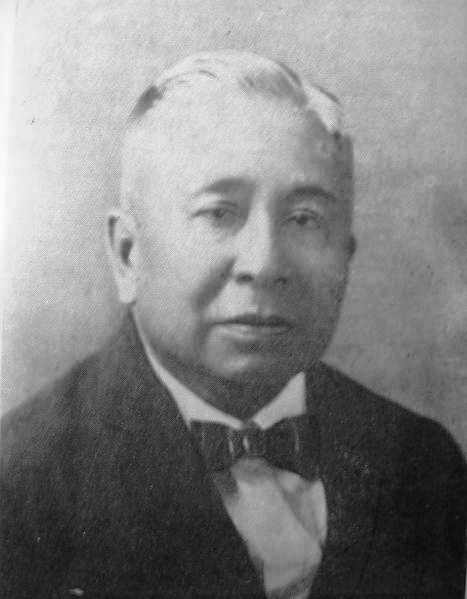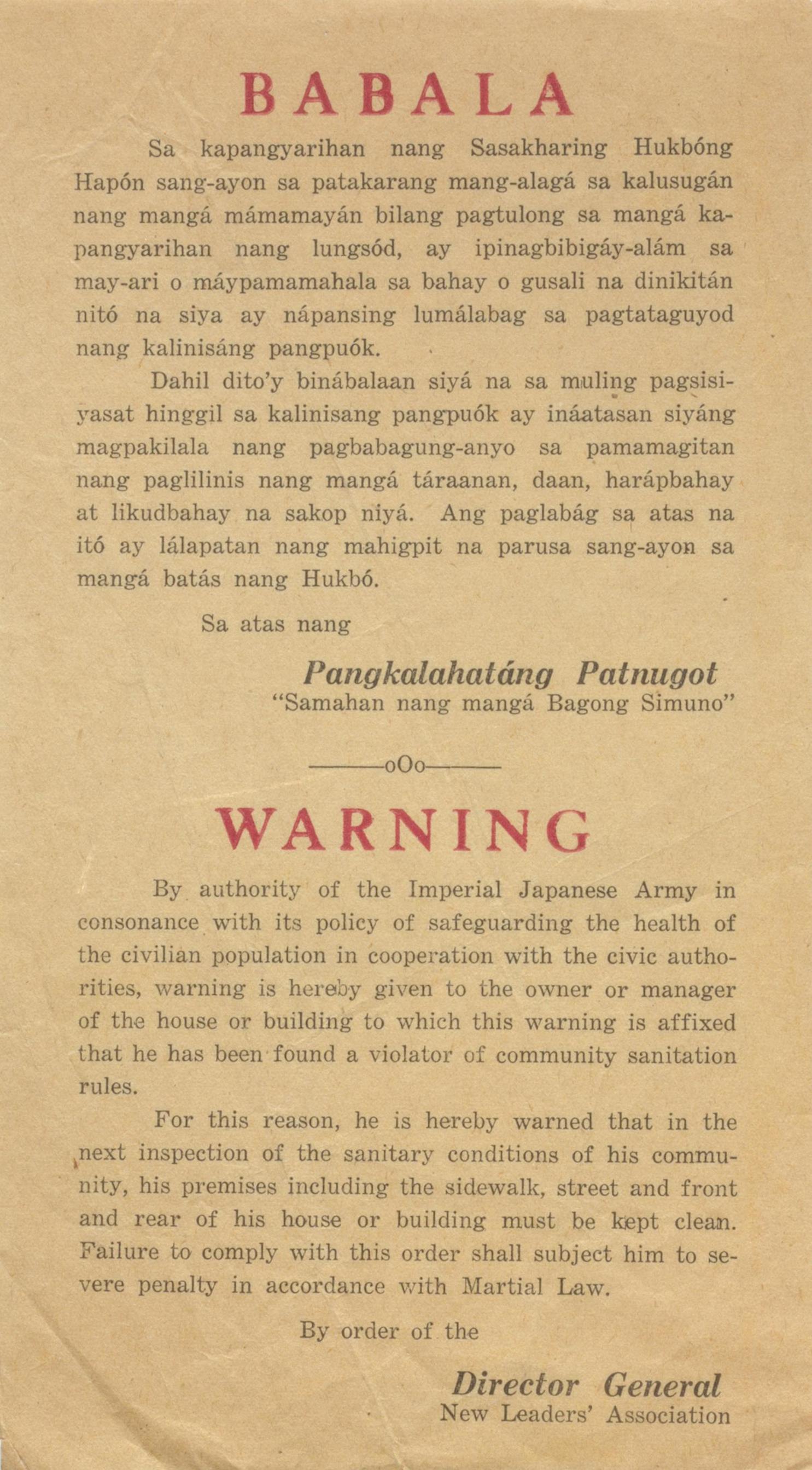|
Communist Armed Conflicts In The Philippines
The history of communist armed conflicts in the Philippines is closely related to the history of Communism in the Philippines, with various armed conflict linked to the armed wings of the various communist organizations that have evolved since 1930. The two largest conflicts have been the Hukbalahap Rebellion of 1942–1954, which was initiated by the Partido Komunista ng Pilipinas of 1930 (PKP-1930) and its armed group the Hukbalahap (HMB) (''Hukbong Mapagpalaya ng Bayan,'' or "People's Liberation Army"), and the ongoing rebellion of the New People's Army, which began in 1969 under the auspices of the Communist Party of the Philippines. The latter conflict was still in its infancy in 1972 when Ferdinand Marcos proclaimed Martial law, but expanded significantly as even the moderate opposition against Marcos was radicalized. A month after Marcos was ousted through the broad-based nonviolent People Power Revolution of February 1986, the unit led by Conrado Balweg formed a splinter g ... [...More Info...] [...Related Items...] OR: [Wikipedia] [Google] [Baidu] |
Communism In The Philippines
Communism in the Philippines emerged in the first half of the 20th century during the American Colonial Era of the Philippines. Communist movements originated in labor unions and peasant groups. The communist movement has had multiple periods of popularity and relevance to the national affairs of the country, most notably during the Second World War and the Martial Law Era of the Philippines. Currently the communist movement is underground and considered an insurgent movement by the Armed Forces of the Philippines. The Communist movement in the Philippines officially began in 1930 with the establishment of the ''Partido Komunista ng Pilipinas'' (Communist Party of the Philippines). The party was outlawed in 1932 by a decision from the Supreme Court, but was technically legalized in 1938. It then merged with the '' Partido Sosyalista ng Pilipinas'' (Socialist Party of the Philippines) and played a part in guerrilla warfare against the Japanese during the Second World War by way o ... [...More Info...] [...Related Items...] OR: [Wikipedia] [Google] [Baidu] |
Communist Party
A communist party is a political party that seeks to realize the socio-economic goals of communism. The term ''communist party'' was popularized by the title of ''The Manifesto of the Communist Party'' (1848) by Karl Marx and Friedrich Engels. As a vanguard party, the communist party guides the political education and development of the working class (proletariat). As a ruling party, the communist party exercises power through the dictatorship of the proletariat. Vladimir Lenin developed the idea of the communist party as the revolutionary vanguard, when the socialist movement in Imperial Russia was divided into ideologically opposed factions, the Bolshevik faction ("of the majority") and the Menshevik faction ("of the minority"). To be politically effective, Lenin proposed a small vanguard party managed with democratic centralism which allowed centralized command of a disciplined cadre of professional revolutionaries. Once a policy was agreed upon, realizing political goals req ... [...More Info...] [...Related Items...] OR: [Wikipedia] [Google] [Baidu] |
Manila Standard
The ''Manila Standard'' is a broadsheet newspaper in the Philippines. , it is owned by the Romualdez family. The Romualdezes, through incumbent speaker of the House Martin Romualdez, also own Journal Publications, Inc., the owner of tabloid papers ''People's Journal'' and ''People's Tonight''. Initially established as the ''Manila Standard'' in 1987, it merged with another newspaper, ''Today'', on March 6, 2005, and became the ''Manila Standard Today'' (MST). In 2015, the newspaper renamed itself as ''The Standard'' (temporarily ''The New Standard''), before reverting to its original name in 2016. History The ''Manila Standard'' was founded on February 11, 1987. The offices were then located at the bustling Ayala Avenue in the Makati CBD. In 1989, the group of Andres Soriano III bought out the Elizalde group and renamed the company Kagitingan Publications and relocated the offices in the Port Area, Manila. In June 1991, the group of businessman Alfonso Yuchengco bought int ... [...More Info...] [...Related Items...] OR: [Wikipedia] [Google] [Baidu] |
Assassination
Assassination is the murder of a prominent or important person, such as a head of state, head of government, politician, world leader, member of a royal family or CEO. The murder of a celebrity, activist, or artist, though they may not have a direct role in matters of the state, may also sometimes be considered an assassination. An assassination may be prompted by political and military motives, or done for financial gain, to avenge a grievance, from a desire to acquire fame or notoriety, or because of a military, security, insurgent or secret police group's command to carry out the assassination. Acts of assassination have been performed since ancient times. A person who carries out an assassination is called an assassin or hitman. Etymology The word ''assassin'' may be derived from '' asasiyyin'' (Arabic: أَسَاسِيِّين, ʾasāsiyyīn) from أَسَاس (ʾasās, "foundation, basis") + ـِيّ (-iyy), meaning "people who are faithful to the founda ... [...More Info...] [...Related Items...] OR: [Wikipedia] [Google] [Baidu] |
Metro Manila
Metropolitan Manila (often shortened as Metro Manila; fil, Kalakhang Maynila), officially the National Capital Region (NCR; fil, link=no, Pambansang Punong Rehiyon), is the capital region, seat of government and one of three List of metropolitan areas in the Philippines, defined metropolitan areas in the Philippines. It is composed of 16 Cities of the Philippines#Legal classification, highly urbanized cities: the Manila, city of Manila, Quezon City, Caloocan, Las Piñas, Makati, Malabon, Mandaluyong, Marikina, Muntinlupa, Navotas, Parañaque, Pasay, Pasig, San Juan, Metro Manila, San Juan, Taguig, and Valenzuela, Metro Manila, Valenzuela, as well as the municipality of Pateros. The region encompasses an area of and a population of as of 2020. It is the second most populous and the most densely populated Regions of the Philippines, region of the Philippines. It is also the List of metropolitan areas in Asia, 9th most populous metropolitan area in Asia and the List of larges ... [...More Info...] [...Related Items...] OR: [Wikipedia] [Google] [Baidu] |
Mount Data Peace Accord
The Mount Data Peace Accord is a peace deal signed between the government of the Philippines and the Cordillera People's Liberation Army on September 13, 1986, ending hostilities due to the latter's campaign for greater autonomy for the Cordillera region. Background Prior to 1966, the Cordillera region was administered under one unit, the old Mountain Province. Abra has been its own independent province. In June 1966, the province was divided into smaller provinces—namely, Abra, Benguet, Ifugao, Mountain Province, and Kalinga-Apayao Under the Regionalization Law or Presidential Order No. 1 issued by President Ferdinand Marcos, the Philippines' provinces were organized under 13 regions. The Cordilleran provinces were grouped under two separate regions: Benguet (including Baguio) and Mountain Province were included under Region I (Ilocos Region), and Ifugao and Kalinga-Apayao were included under Region II (Cagayan Valley). An armed movement in the Cordillera region that advo ... [...More Info...] [...Related Items...] OR: [Wikipedia] [Google] [Baidu] |
Ramon Magsaysay
Ramon del Fierro Magsaysay Sr. (August 31, 1907 – March 17, 1957) was a Filipino statesman who served as the seventh president of the Philippines, from December 30, 1953, until his death in an aircraft disaster on March 17, 1957. An automobile mechanic by profession, Magsaysay was appointed military governor of Zambales after his outstanding service as a guerrilla leader during the Pacific War. He then served two terms as Liberal Party congressman for Zambales's at-large district before being appointed Secretary of National Defense by President Elpidio Quirino. He was elected president under the banner of the Nacionalista Party. He was the first Philippine president born in the 20th century and the first to be born after the Spanish colonial era. Biography Ramon del Fierro Magsaysay, of mixed Tagalog, Kapampangan, Ilocano, Spanish, and Chinese descent, was born in Iba, Zambales on August 31, 1907, to Exequiel Magsaysay y de los Santos (April 18, 1874 in San Marcelino, ... [...More Info...] [...Related Items...] OR: [Wikipedia] [Google] [Baidu] |
Japanese Occupation Of The Philippines
The Japanese occupation of the Philippines (Filipino: ''Pananakop ng mga Japones sa Filipinas''; ja, 日本のフィリピン占領, Nihon no Firipin Senryō) occurred between 1942 and 1945, when Imperial Japan occupied the Commonwealth of the Philippines during World War II. The invasion of the Philippines started on 8 December 1941, ten hours after the attack on Pearl Harbor. As at Pearl Harbor, American aircraft were severely damaged in the initial Japanese attack. Lacking air cover, the American Asiatic Fleet in the Philippines withdrew to Java on 12 December 1941. General Douglas MacArthur was ordered out, leaving his men at Corregidor on the night of 11 March 1942 for Australia, 4,000 km away. The 76,000 starving and sick American and Filipino defenders in Bataan surrendered on 9 April 1942, and were forced to endure the infamous Bataan Death March on which 7,000–10,000 died or were murdered. The 13,000 survivors on Corregidor surrendered on 6 May. Japan occupie ... [...More Info...] [...Related Items...] OR: [Wikipedia] [Google] [Baidu] |
Alex Boncayao Brigade
The Alex Boncayao Brigade (abbreviated as ABB; also known as the Sparrow Unit) was the urban assassination unit of the New People's Army, the armed wing of the Communist Party of the Philippines. Organized in 1984, the unit broke away from the New People's Army as a consequence of a split in ideology during the 1990s. In 1997, the Alex Boncayao Brigade allied itself with the Revolutionary Proletarian Army, the armed wing of the Revolutionary Workers' Party. Background The Alex Boncayao Brigade was established in May 1984 and was named after a labor leader killed by Philippine government security forces the year before. The brigade became especially active after the departure of then-President Ferdinand Marcos as a consequence of the People Power Revolution, and during the term of President Corazon Aquino. In 1993, Filemon Lagman and several cadre of the Manila-Rizal regional committee of the Communist Party of the Philippines (CPP) broke away from the mainstream group, ... [...More Info...] [...Related Items...] OR: [Wikipedia] [Google] [Baidu] |
Revolutionary Proletarian Army
The Revolutionary Proletarian Army, also known by the acronym RPA, was the military wing of the Revolutionary Workers' Party (Rebolusyonaryong Partido ng Manggagawà ng Pilipinas) (RPM-P), a communist party that split from the Communist Party of the Philippines. Background The ''Rebolusyonaryong Partido ng Manggagawà ng Pilipinas'' ("Revolutionary Workers' Party of the Philippines") was established after the Negros Regional Party Committee of the New People's Army broke away from the Communist Party of the Philippines as a result of an ideological split in 1996. It organized its military arm two months after the split, calling it the Revolutionary Proletarian Army. The Metro Manila-based Alex Boncayao Brigade, which also broke away from the New People's Army, allied itself with the RPA the year after, forming the Revolutionary Proletarian Army – Alex Boncayao Brigade (RPA-ABB). Activities The Revolutionary Proletarian Army – Alex Boncayao Brigade engaged in peace negoti ... [...More Info...] [...Related Items...] OR: [Wikipedia] [Google] [Baidu] |




